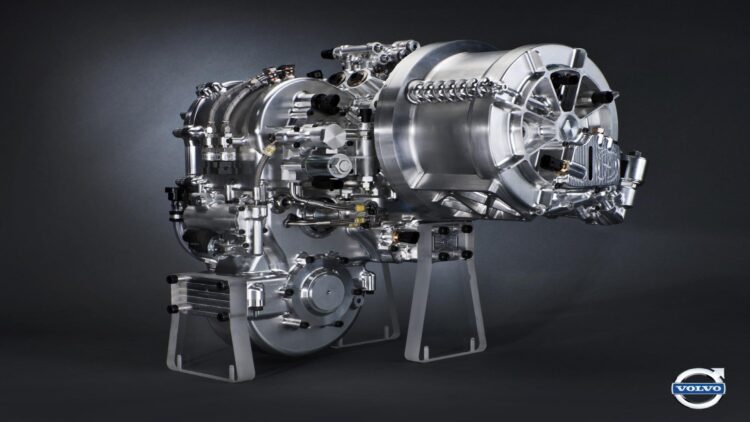The automotive industry receives pioneering news from Sweden because Volvo will implement trucks operating on hydrogen internal combustion engines (H2-ICE) starting in 2026. The automotive company Volvo announced its agenda for launching H2-ICE engine trucks that will hit the market in 2026. This announcement shows Volvo has adopted an essential transition toward zero-emission sustainable transport solutions, threatening to surpass leader Tesla in EV sales. This article provides details about the transformative advancement.
Volvo’s bold new hydrogen engine plans could change everything for Tesla.
The automotive industry experiences a crucial development from Volvo’s official declaration. The truck market will receive trials using hydrogen internal combustion engines starting in 2026, and the company aims to engage broader consumer markets during the last decade of the current period. These engines will operate through HPDI technology by pumping ignition fuel at high pressure as a starting element before hydrogen addition. The new method combines excellent performance, high energy efficiency, and reduced emissions output.
The HPDI technology is the driving force behind Volvo’s hydrogen combustion engines. The engine ignition sequence starts with conventional diesel fuel injected at high pressure. Immediately following diesel fuel injection, the system delivers hydrogen under high pressure to maintain the combustion process’s efficiency and cleanliness. The system meets and exceeds the productivity standards of fuel cells while operating in heavy-duty truck environments.
The HPDI system delivers superior thermal performance and power capacity to conventional diesel engines as a powerful alternative power solution. The main advantage of using hydrogen combustion engines from Volvo stems from their ability to minimize emissions dramatically. When used in H2 HPDI systems, this approach reduces CO2 emissions by 95% compared to diesel engines and could achieve a 98% reduction through performance-enhancing modifications.
How Volvo’s hydrogen trucks can save companies millions while helping the planet
Random diesel usage remains needed to start engine operation, yet this condition restricts the system from reaching zero emission status. The technology delivers near-zero greenhouse emissions with less expense than electric fuel cells or battery-powered vehicles, thus representing a desirable choice for extended-distance trucking needs. Hydrogen combustion engines present numerous advantages that lead to practical and economic benefits. The production and maintenance of hydrogen fuel cells cost significantly more than generating hydrogen combustion engines.
Heavy-duty truck operators find these engines favorable because they require less cargo capacity and vehicle space, resulting in lower costs. Existing diesel infrastructure compatibility gives these systems reliable integration and operation quality, making them more desirable. European truck owners have adopted HPDI technology from Westport Fuel Systems at a high rate. HPDI trucks operate in thousands of vehicles, while European markets show continuous sales expansion at more than 100% annually over the previous three years.
Hydrogen infrastructure is exploding worldwide, and Volvo is right on time to dominate
British Columbia devotes $900 million to hydrogen plant development and refueling stop establishment alongside the H2 Gateway project to build 20 hydrogen fuel cell vehicle refueling stations. The current developments enable a viable fundamental framework to support HPDI technology, which positions it as a contemporary solution for long-haul trucking operations. Testing of Volvo trucks that run on hydrogen is happening in laboratory settings, while on-road testing will commence in 2026.
Technical validation of this technology will depend on successful evaluation under real-world conditions through these tests. The company plans to bring the commercial launch of this product to market during the late portion of the decade. When Volvo trucks utilize renewable HVO (Hydrotreated Vegetable Oil) as ignition fuel, their operation results in minimal NOx production and exceptionally low CO2 emissions.
Volvo advances sustainable transportation by dedicating itself to hydrogen combustion engine development. Volvo applies HPDI technology to develop trucks with impressive performance while minimizing emissions better than electric trucks in commercial applications. By implementing this move, Volvo gains leadership in green technology and establishes new benchmarks for the entire automotive sector.


